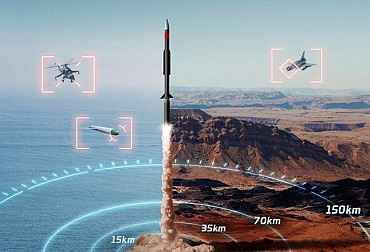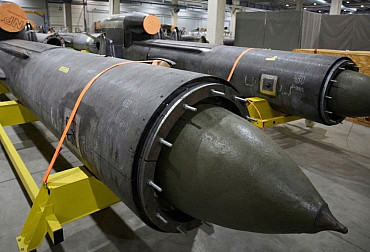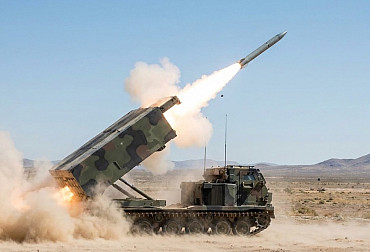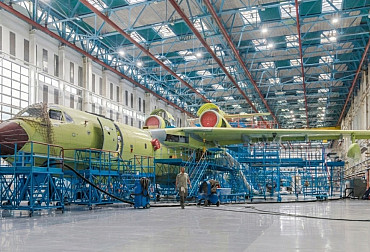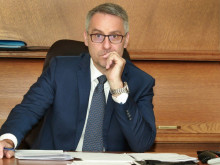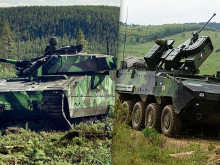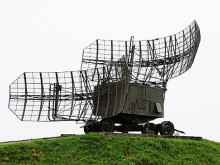The Defence Committee did not get to the key issues, but it clearly stressed the need to purchase new military equipment
The Defence Committee held its 12th meeting yesterday. The agenda was based on the cancelled meeting scheduled for 7 June. According to the proposed agenda, the members of the Defence Committee were to be informed, for example, about the acquisition of the Infantry Fighting Vehicles, the purchase of Leopard 2 tanks and donations to Ukraine. For work reasons, Defence Minister Jana Černochová was unable to attend the Committee meeting this time, as she was attending a Government meeting with the President of the European Parliament and members of the Conference of Presidents of the European Parliament. It was the Minister for Defence who was due to introduce the above-mentioned agenda items.
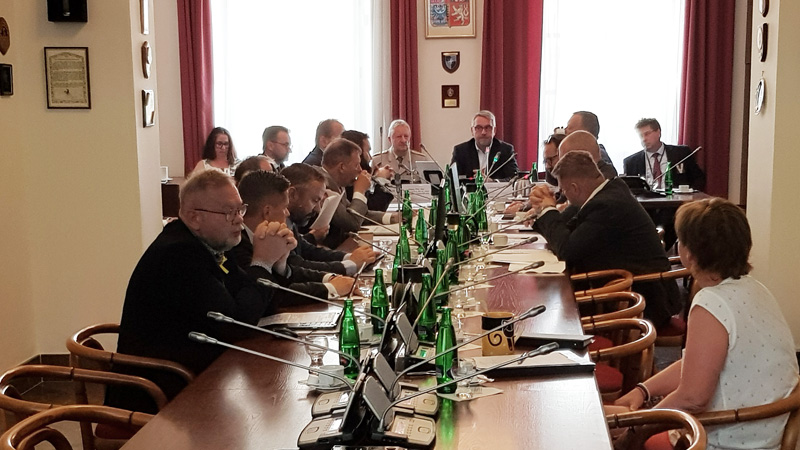 Picture: 12th meeting of the Defence Committee | Jan Zilvar / CZ DEFENCE
Picture: 12th meeting of the Defence Committee | Jan Zilvar / CZ DEFENCE
It was precisely because of the absence of the Defence Minister that the coalition representatives proposed to exclude from the agenda the discussion of the order for the IFV and the purchase of Leopard tanks and recommended moving these items to the next session, which is scheduled for Tuesday 21 June. After a short discussion, this postponement was approved by 8 votes out of 14. The introductory report was presented by Petr Čech, Deputy Minister for the Management of the Defence Policy and Strategy Section of the Ministry of Defence. Some MEPs described the report as very general and insisted on specific information. Therefore, this item was also suspended with the proviso that the requested information would be submitted to the Committee. In this case, according to the Ministry of Defence, the communications in question were sensitive, so everything would be dealt with accordingly. In closed session, the Committee then discussed information on developments in the situation in Ukraine and, as at previous meetings, suspended the discussion.
This time, too, we asked the members of the Committee three poll questions:
1. In your opinion, how would the Army of the Czech Republic, as a member of NATO, stand up in a possible combat conflict with Russia in terms of personnel and technical equipment?
2. What further course of action would you prefer regarding the acquisition of new IFVs for the Czech Armed Forces?
3. How would you explain the need to purchase new military equipment in these economically challenging times?
Below are the responses of the committee members who responded:
Lubomír Metnar (ANO), Chairman of the Committee
1. First of all, it should be remembered that not only the Czech Republic and its Army are members of the North Atlantic Alliance and its defence capability is based on collective defence within NATO. Building the capabilities of individual NATO armies with regard to collective defence has been conceived in this way since the creation of the North Atlantic Alliance, and the capabilities of the Alliance should be assessed as a whole. From this point of view, the North Atlantic Alliance is a fully-fledged professionally trained and technically equipped army capable of facing all current crises. The Army of the Czech Republic is also a professional army and a fully-fledged and recognised member of the North Atlantic Alliance.
2. I prefer a course of action that will be the most advantageous and effective for the Czech Republic and its Army and that will be in accordance not only with the legal order of the Czech Republic but also in accordance with European directives. The most important thing is to involve domestic industry as much as possible, as I advocated during my time in the ministry.
3. The problem is that we are merging the topic of the country's defence and armaments with economic issues. The Government has the tools and means to invest in defence and, at the same time, to provide the necessary assistance to Czech citizens. Our shadow Government has drawn up ten measures that would help citizens in this difficult economic situation, even assuming that defence spending is increased. It should be remembered that unless the Czech Republic's defence capability is ensured through a professional and modern Army, the well-known equation of defence capability, stability and prosperity of a country will hardly be fulfilled.
Josef Flek (STAN), Vice-Chairman of the Committee
1. This is a heavily hypothetical question, which I dare not answer in one paragraph. It would be for a completely separate study. We have a great military, and I am very proud of every member of it. We have a lot to give to our allies, but one of the purposes of NATO is to leverage the unique capabilities of each army while covering each other's weaknesses. Someone is better at artillery, someone is better at counter-chemical units (Czech Republic). Playing on our own turf today is neither wise nor possible for a country of our size and economic strength. In short, there is an alternative to NATO membership today, but it is a very dangerous alternative. We would be risking the security of our citizens.
2. I am of the opinion that the contract should be phased in next year. The deadline for our promise to the Alliance is fast approaching: 2026 is already a pretty crazy deadline for such a major acquisition. We have inherited a poorly set contract and the Minister is working to redefine it. And she also has to win money from her party colleague, the finance minister. I fully support the Minister on both counts.
3. In one of my media duels with my colleague Žáček, I said that I was in favour of increasing defence spending, but gradually. Gradually. We must do so with regard to the social situation. However, we can no longer stick our heads in the sand and pretend that money for security will wait for better times. We must tackle both crises at the same time. That is where our dilemma is almost insoluble. I am a friend of social measures for those affected by the crisis. And on defence, I would prefer vital contracts: for IFV, airspace protection, etc. The rest must wait a while. It is very important to concentrate on meaningful investment and not to include anything in the 2% of GDP for defence. That would then be unfair to our NATO allies. However, defence research should be included - it is a non-negotiable component. It is not only us who will benefit from it, but also our allies.
Jan Hofmann (ODS), Vice-Chairman of the Committee
1. I do not want to anticipate a situation in which our country is attacked, as in the case of Ukraine. We must do everything we can to prevent this conflict from approaching our borders. We are part of NATO and Article 5 applies. If there is an armed attack against one or more members of the Alliance, it will be considered an attack against all of them. NATO's Army is much stronger than Russia's.
2. Let's wait for the legal firm's opinion and act accordingly. The ministry must choose the option that will allow the purchase of the IFV as soon as possible.
3. For many years we have been seduced by the peace in Europe and investment in defence has been grossly underestimated by a number of countries. Only the current situation has shown us what a mistake that was. Our army is small and therefore we need to invest in smart technology. For many years, Russia has promoted its Army as modern, very advanced and a source of respect from other countries. In the same way, we need to deter the enemy. Many of today's problems are the result of Russia's behaviour. Unfortunately, living in peace and freedom is not a value for all countries, and we must prepare for this.
Pavel Růžička (ANO), Vice-Chairman of the Committee
1. It must be stressed that if a conflict between NATO and Russia were to occur, it would be a failure of diplomacy on all sides. Armed conflict is the stupidest and worst way to resolve disputes or animosities. Problems should always be resolved at the negotiating table with a cool head. But to answer your question, I think our military is a respected and valid member of NATO. I think we can be proud of the quality of our military personnel. And I'm glad that the Army is educating and recruiting experts in areas that will be critical on the modern battlefield in a few years - electronic warfare, autonomous systems. In terms of materiel and equipment, the huge investment debt of the past decades is still visible. However, we need to look at acquisitions not only in terms of the amount of money spent and the assessment of budget exhaustion, but we need to focus on their effectiveness, including their impact on the economy of our country. Arms procurement by domestic industry can significantly stimulate economic growth. I believe that in five to seven years' time the Army will be completely different from what it is now.
2. No one doubts the necessity of rearmament of the 7th mechanized brigade today. We will support any course of action that will lead to the rapid conclusion of a supply contract with maximum involvement of the domestic industry. The Ministry has so far given the excuse that it is awaiting a legal opinion. I remind you that it was originally due in March and the deadline was subsequently extended to the end of April. I expect that we will know in the next few days how the MoD plans to proceed. I would not like to see the Ministry's indecision leading us to end up buying equipment costing tens of billions more.
3. I understand that defence spending may strike some as an unnecessary luxury. Or at least such populist views have been voiced in recent years of relative peace and quiet. Covid and especially the war in Ukraine show us that we cannot do without a military. Security is our basic need, in which we must collectively invest. And it is not just a platitude. And without a modernised army, we will not have the very basic prerequisite for prosperity - security. Would anyone really care about the green economy and similar "modern" issues if we had missiles flying over our heads? Would anyone really care about, say, education reform if hundreds of thousands and millions of our citizens had to flee war with their only possessions in a plastic bag? I don't think so. And that's why we need to invest in defense.
Karel Krejza (ODS), Member of the Committee
1. I have no doubt about the Czech Army's personnel readiness; after all, our soldiers are gaining success and experience even in international exercises, and in Afghanistan they were among the best. I am sure that the current technical equipment is totally inadequate. That is why the Ministry will now have an increased budget, why we must buy and modernise. However, I do not think that the Russians would provoke any further conflict at the moment.
2. After previous experience, definitely Government-to-Government. I have repeatedly pointed out in the past that we cannot defend ourselves against an enemy with paragraphs and thousands of pages of procurement documents. Although we had three bids, we were unable to award the contract. Suddenly there is a war and we have a BVP-2 from the 1970s, which the soldiers themselves call a mobile coffin.
3. It's just a necessity. Only a functional army is an expression of a nation's self-confidence and self-determination. Without it, we could become slaves.
Petr Liška (STAN), Member of the Committee
1. In my opinion, our Army is at a very good professional level and is highly valued by our allies. Despite a number of new acquisitions, thanks to which the Armed Forces have acquired equipment, especially for troops on missions, it is unfortunately clear that previous governments bought and dealt with acquisitions of new equipment as if there was no danger, i.e. with a kind of recklessness. The inability of the previous government, for example, to complete a tender for the acquisition of IFVs is indicative of systemic problems that need to be resolved as soon as possible. A number of acquisitions are in the pipeline and in the current environment it will take great effort to complete them as quickly as possible.
We have to fulfil our commitments to NATO and we are part of an alliance based on defining the roles of the individual components within the whole. We are fulfilling our key roles and we are relying on our allies to provide defence. It is a reality that our army alone cannot provide protection against aggression from a significantly stronger opponent, even though the Russian army has somewhat lost its reputation through the conflict in Ukraine. It is true that we need to replace ageing equipment as quickly as possible, and we need to modernise and supplement the Army with equipment whose necessity is shown by the experience of Russia's ongoing aggression in Ukraine. We must also, and the current government is committed to doing so, increase overall state spending on the military. We must move to the level promised to NATO allies and, above all, we must invest wisely and effectively.
2. Based on the available information, or rather estimates, and on the basis of doubts about the tender process, I would be inclined to cancel the current tender and launch a new one. However, the subject is now being examined by experts and I admit to changing my position in the light of an assessment of all the legal aspects. However, the length of the tender and the course of the tender, accompanied by, for example, 9 000 supplementary questions from the contracting authority, do not, in my opinion, indicate good preparation.
3. I think that every sane citizen of the Czech Republic must perceive the growing risk. We have our historical experience and we see that Russia, but also China, is increasing its pressure. We can see that these countries are ruled by unpredictable politicians, or rather authoritarians, who do not care about people's lives and are only pursuing their own power interests, perhaps influenced by a psychological state that increases the level of danger. Every state, if it wants to call itself a state, must ensure its protection and its identity, and this cannot be done without an army. Diplomatic negotiations take precedence, but unfortunately, reason still does not rule the world. Diplomacy backed by strong protection always has a better chance of success. Government spending is about priorities, which change over time according to the current situation, and the world is now threatened by aggressors. We cannot remain unprepared, fail to meet our collective defence commitments and ask allies to meet the costs of our protection themselves, with the alibi that we will just 'go along for the ride'. As for the economic reality, it is one that is partly due to irresponsible management in previous years and partly due to external aggression, which we potentially have to defend ourselves against. After years of waste, we need to acknowledge the reality and, while maintaining decent living conditions for all citizens who take a proactive approach to providing for their needs, prevent further aggravation of the economic problems, i.e. stop living beyond our means and on debt.
Radovan Vích (SPD), Member of the Committee
1. In terms of the capabilities, organisational structure, size and deployment of our Army, in view of the long-delayed modernisation projects and the current tenders for strategic and important projects, our Army would have no chance of standing on its own in the defence of our national territory.
2. A selection procedure with a simple specification of the required capabilities. The simpler the specification, the more bidders and bids. When assessing bids, it is necessary to take into account the existing established platforms and to take into account how our V4+ format colleagues proceed. The Army must have clearly defined tasks that it will perform in defending the territory of our state.
3. It is not the Army's fault that it is lagging behind technically and technologically; it is the fault of all governments since 2004, which have not only underfunded the army but also postponed or cancelled acquisitions and modernisations for various reasons. Two years ago, the covid and now the war in Ukraine came into the picture. These facts have led to the fact that, on the one hand, we have astronomical deficits in state budgets, but also a substantial rise in the price of raw materials, especially steel. As a result, the prices of new armaments are also rising, which companies are also unable to produce at an affordable price in a short space of time, because there is a huge demand on the market. It is therefore necessary to proceed with deliberate planning of modernisation projects and also not to increase the army budget by leaps and bounds, but continuously with projects prepared in advance. This will save funds that can be used to help our citizens in the food and energy crisis that is yet to come.
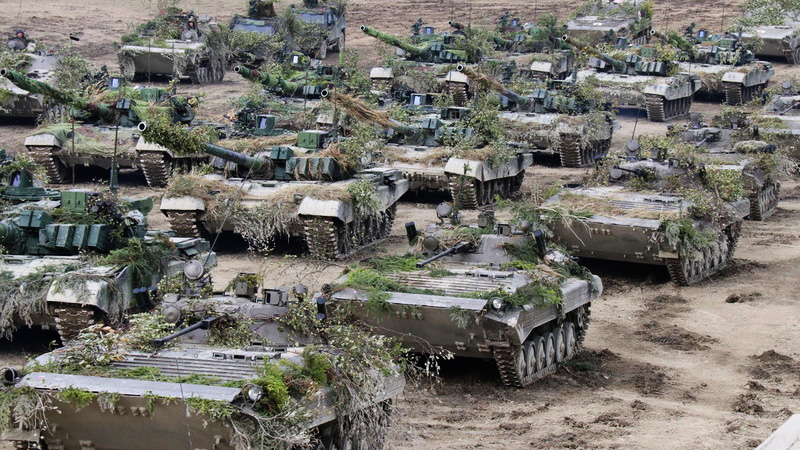 Picture: Members of the Defence Committee stressed the need for new military equipment purchases (illustration photo) | Ministry of Defence of the Czech Republic
Picture: Members of the Defence Committee stressed the need for new military equipment purchases (illustration photo) | Ministry of Defence of the Czech Republic











